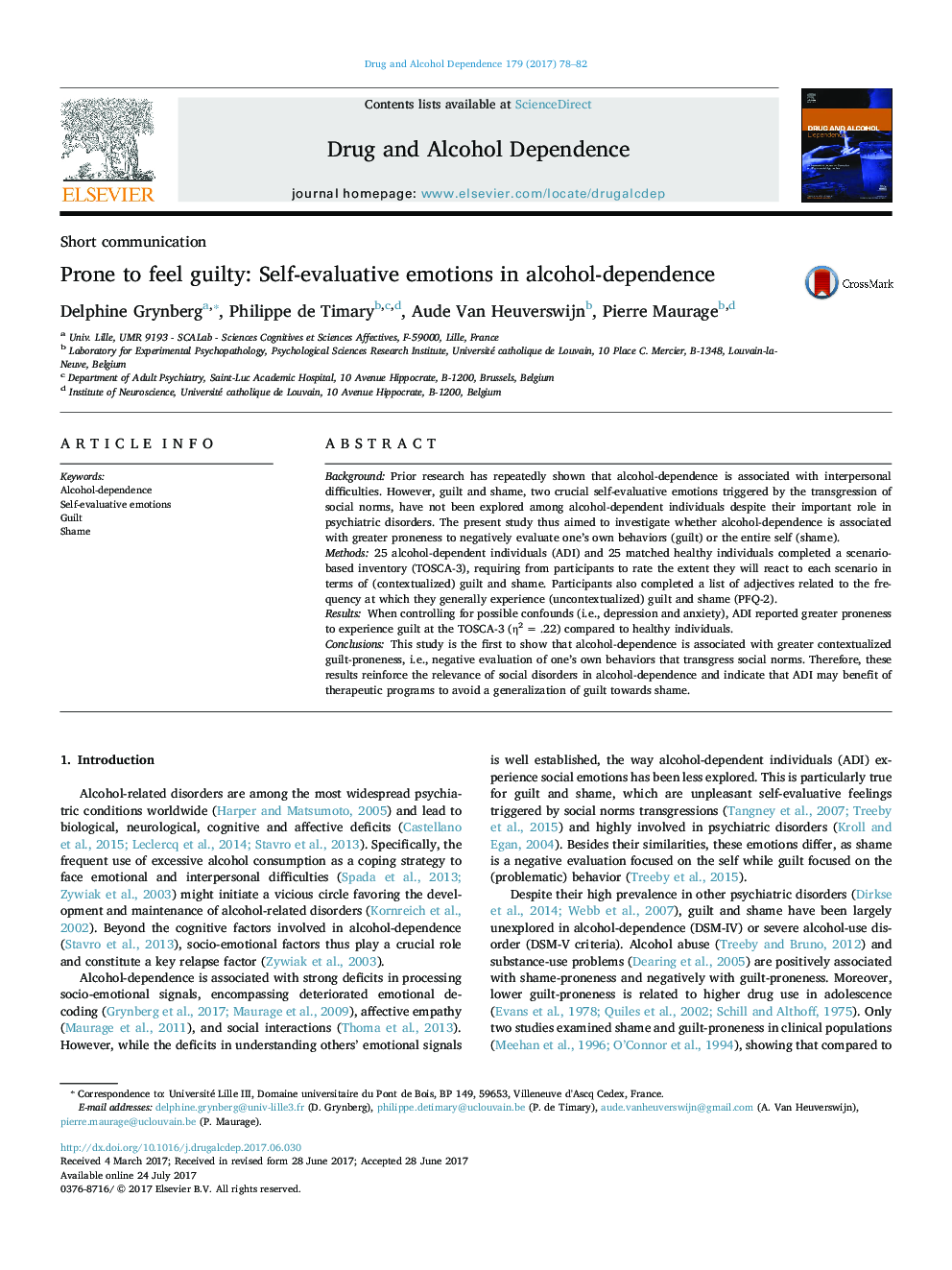| کد مقاله | کد نشریه | سال انتشار | مقاله انگلیسی | نسخه تمام متن |
|---|---|---|---|---|
| 5119976 | 1486112 | 2017 | 5 صفحه PDF | دانلود رایگان |
- Alcohol-dependent individuals (ADI) have interpersonal deficits.
- However, it is unclear whether ADI report greater guilt and shame proneness.
- ADI reported greater proneness to experience guilt.
- ADI and healthy individuals reported the same proneness to experience shame.
- ADI have a negative evaluation of their behaviors that transgress social norms.
BackgroundPrior research has repeatedly shown that alcohol-dependence is associated with interpersonal difficulties. However, guilt and shame, two crucial self-evaluative emotions triggered by the transgression of social norms, have not been explored among alcohol-dependent individuals despite their important role in psychiatric disorders. The present study thus aimed to investigate whether alcohol-dependence is associated with greater proneness to negatively evaluate one's own behaviors (guilt) or the entire self (shame).Methods25 alcohol-dependent individuals (ADI) and 25 matched healthy individuals completed a scenario-based inventory (TOSCA-3), requiring from participants to rate the extent they will react to each scenario in terms of (contextualized) guilt and shame. Participants also completed a list of adjectives related to the frequency at which they generally experience (uncontextualized) guilt and shame (PFQ-2).ResultsWhen controlling for possible confounds (i.e., depression and anxiety), ADI reported greater proneness to experience guilt at the TOSCA-3 (η2 = .22) compared to healthy individuals.ConclusionsThis study is the first to show that alcohol-dependence is associated with greater contextualized guilt-proneness, i.e., negative evaluation of one's own behaviors that transgress social norms. Therefore, these results reinforce the relevance of social disorders in alcohol-dependence and indicate that ADI may benefit of therapeutic programs to avoid a generalization of guilt towards shame.
Journal: Drug and Alcohol Dependence - Volume 179, 1 October 2017, Pages 78-82
